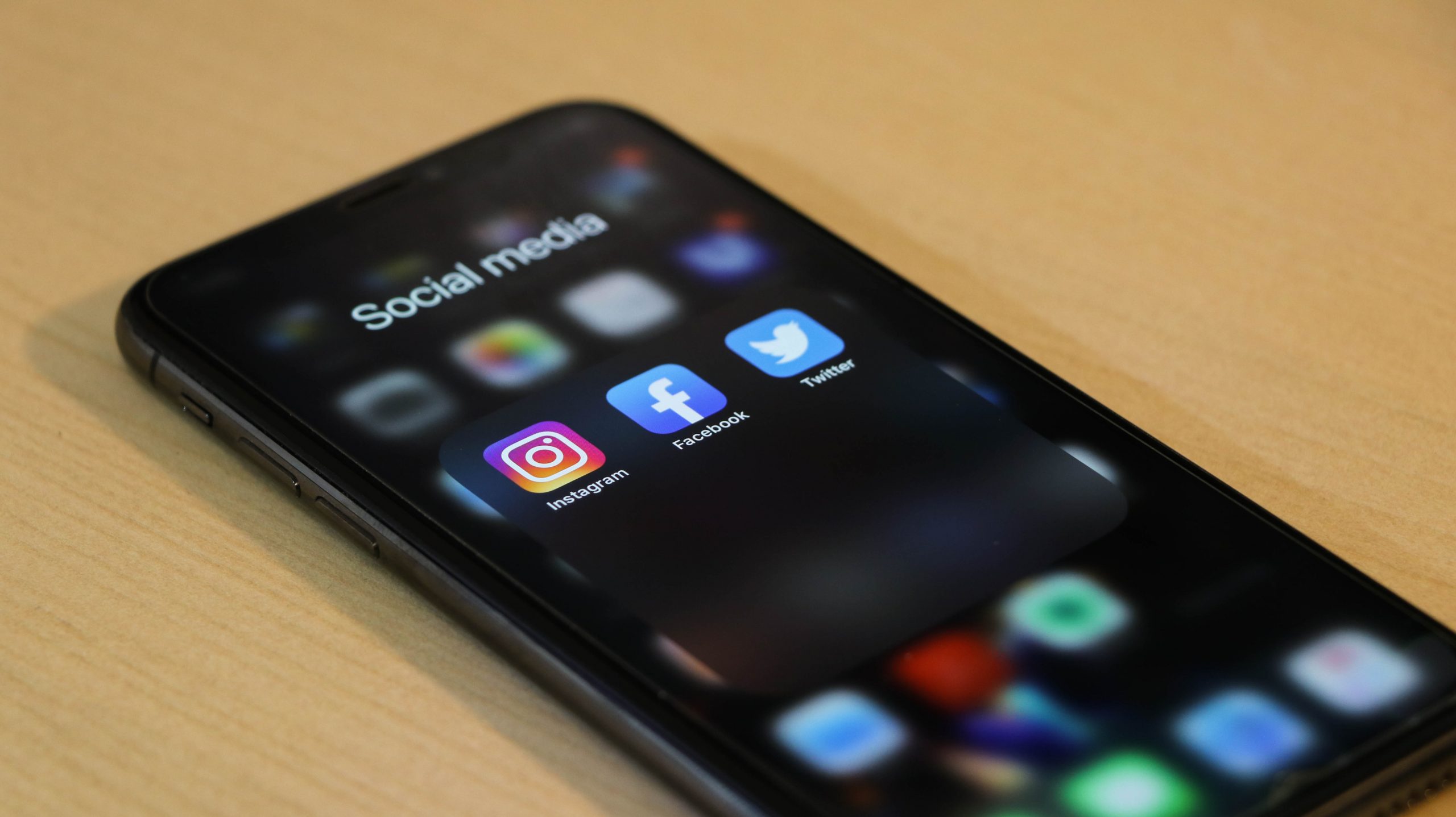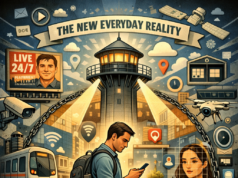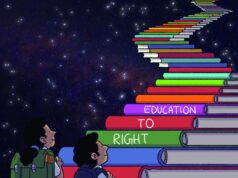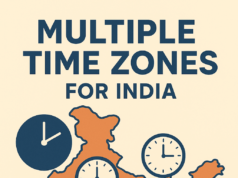The fundamental unit of a Liberal democracy such as ours is the rational individual endowed with civil, economic and political rights. Among the most crucial of these is the right to free speech. This, however, is not an absolute right and hence poses a big dilemma. Humans have an inherent urge for self-expression and speech, but some speech can hurt the society’s peace at large. This might then legitimize the role of the state in regulating free speech (eg: prevention of hate speech that spurs a communal riot). So, how free can free speech be?
The reasonable restrictions clause (Art 19(2)) leaves room for amebic excursions of the Indian state into everyday lives of the people, while claiming to guarantee protection of public order. The pronouncement of fundamental rights granted constitutional protection to the citizens from the state. The state has, however, found ways to crack down on individual rights and liberties, especially conventional free speech. This is evident in the use of extraordinary legal measures such as Unlawful Activities (Prevention) Act (1967) and Sedition Law (Section 124 A) in the name of national security. UAPA was introduced decades ago to curb terrorism and maintain the integrity and sovereignty of the country. It has gradually grown, through multiple amendments, to constrict Article 19, permitting detention up to 180 days without any charge by the state authorities. The recent amendment to the UAPA in 2019 only furthered the state power to encroach upon individual freedoms, making it possible for the government to hold not only organizations but also the individuals accountable.
Section 124 A of Indian Penal Code, on the other hand, is a colonial law continued to this day. It renders immense power to the government to charge any visible representation, words spoken or written, which can potentially cause hatred or contempt as illegal and demanding legitimate governmental action. The ambit of declaring an activity unlawful and imposing a country-wide ban on associations, or framing individuals as potential threats to national integrity has brought free speech to the grey area. These extraordinary laws have been mostly used on lawyers, activists, journalists and civil society members. Government reported to the Rajya Sabha that a total of 5,128 UAPA cases, 229 sedition cases were lodged across the country from 2015-19. These included the arrests of student activists Devangana Kalita and Natasha Narwal, Umar Khalid, and Disha Ravi, to name a few. Academics, like Apoorvanand, Honey Babu and Jayati Ghosh, have also been slapped with sedition charges. A jump of 165 % from 35% of UAPA cases has been recorded by NCRB between 2016 and 2019. A similar hike of 33% in Sedition charges has been observed.
Despite growing arrests the conviction rate is extremely low in both cases – Below 2% of those arrested are convicted in UAPA between 2015-2019 and only 3.3% till 2019 in cases of Sedition according to NCRB Data.
The trajectory of Indian democracy from “Free” to “Partly Free” in Freedom House’s latest report is reflective of the state’s attempts to curb political dissent. As India moves towards collectivist ideals of Hindutva, which promote greater governmental interference in the domain of free speech, a dilemma arises. Should the state, which has time and again been accused of hampering free speech, be the judge of what constitutes a ‘good’ speech? Should the growing influence of the state in the areas of free speech become a valid ground to rethink questions on speech in a democratic country that claims to uphold fundamental rights? There are no easy answers to these dilemmas of free speech and state control.
Individuals participate in exchange of ideas and information that drives social action. The premise of which is also that individuals need to express themselves for achieving self growth. Further, government regulation on the free flow of information only juxtaposes the conventional understanding of individuals as rational actors, who can screen required information which suits them. Public choice theory argues that much like private individuals (or market actors), government agents are also self-interested, rational actors. Therefore, to assume that government regulation on free speech would be motivated by benevolence and not self-interest is a faulty assumption.
The vulnerability of political speech and information and the fact that politicians are self-interested actors raises another dilemma. Free speech runs through troubled waters when it is used to stifle the voice of others who might hold contrary opinions or challenge the dominant voices. On the other hand, hate speech and war mongering might not be free speech at all if it systematically threatens the capacity of other individuals to protect their freedom. For instance, Kapil Mishra’s inciting speech and sloganeering by Anurag Thakur is said to have stirred the North-East Delhi riots.
On online free speech
In an evolving world, social media has enabled a more spontaneous global order. Free speech has assumed increased importance. Platforms like Facebook and Twitter have become spaces for free speech and expression, which has also facilitated speedier and easier dissemination of information. This has created not only new social but also new political and even economic relationships between people. For instance, Facebook’s market capitalization is twice the size of all large European tech giants combined. Twitter, Facebook and other social networking sites have also aided digital activism like the #MeToo Movement or Black Lives Matter movement. In India, a more recent victory for online free speech was the social media-led rescue of the near collapse of the country’s public health system during the pandemic. But what happens when this free flow of information is regulated?
Before 2015, Section 66A of the IT Act 2002, acted as a legal censor for online speech in India. The objective of the law was to tackle cyber crime, and it was grossly misused by the state. The draconian law was struck down in 2015 in the Shreya Singhal vs Union of India Case, a major victory for online speech. However, it came to the Supreme Court’s notice that the Section was surprisingly still in use. In 2021, the government introduced its new IT rules. These rules only increased the purview of government control, which might further harm the cooperative and dynamic framework of social media. Government-mandated IT Rules will now allow it to regulate digital platforms. The former can ask the latter to reveal the originator of a message or Tweet under the Digital Ethics Code. Such traceability puts in jeopardy the privacy of users and thwarts their free speech. According to the Rules, any content impacting the sovereignty and integrity of the country or is detrimental to the country’s international relations will be under the scrutiny of an intermediary who shall be notified about such content by the government or its agency and/or Court. These intermediaries are protected under Section 79 of the IT Act, 2000, provided they comply with government guidelines.
The IT Rules then legally allow the government to regulate online free speech and give them the legal cover to take down any or all material from social media deemed unlawful. This can be seen as yet another measure for the government to curb political dissent. The new Rules will enhance the role of the government from a regulator to a controller. The creation of Grievance Redressal Mechanism (Rule 11) now has the power to not only receive complaints but also acknowledge and resolve the complaints within a 15-day deadline without giving any reason for the decision taken by them. Thus, the new IT Rules’ provisions leave scope for the government to maneuver itself as a judge on good and bad speech, detrimental to (online) free speech.
A free society is a result of human action and not human design as Adam Ferguson wrote. Such a regulatory framework, with an intermediary or the state constantly scrutinizing individuals, undermines free speech. Further, Hayek stated that when government regulations, commands and prohibitions dictate people’s interactions and actions, people are limited in their liberty. In India, this was evident even during the Pandemic! 55 journalists were arrested or slapped with sedition for their reporting of the pandemic according to Rights and Risks Analysis Group in the months of March and May, in 2020 alone.
Do the recent encroachments upon online speech using legal and policy apparatus by the government make a compelling case for absolute free speech? Would it help to completely remove the biased moderator? Lysander Spooner, an American legal theorist, abolitionist and radical individualist, states that no entity can coerce any individual to act in obedience to what the former feels is the right action or knowledge. In the current scenario, the government often steps in as the moral authority over what fits as good and bad speech, stopping the progress of knowledge, impacting individual liberty and pursuit of happiness. A convincing reason to push back the state from the sphere of free speech.
The government has put forth the spread of false news, public morality and safety of citizens as the reasons for control on speech. However, government surveillance in citizens’ daily lives, regulating human behaviour and action, will result in tyranny. As Hayek quotes, “Tyranny results from the government’s attempt to plan the workings of daily life,” the constant fear of privacy and subsequent clampdown might fundamentally change the way we engage online.
Read more: Why Pegasus is just the tip of the iceberg
Post Disclaimer
The opinions expressed in this essay are those of the authors. They do not purport to reflect the opinions or views of CCS.






